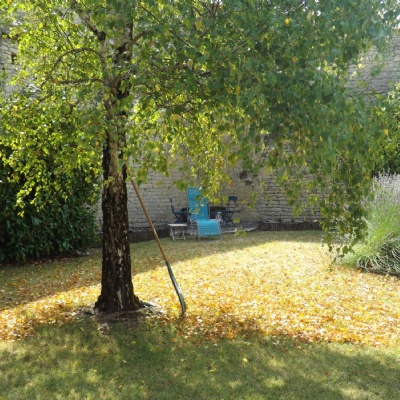Free from Distractions

You may not be surprised to know that I am looking forward to the half term holiday. On an obvious level, it means time away from work to relax and recharge the batteries. We are heading to France for a few days as part of our ongoing quest to declutter our property in London by cluttering up the house in France we bought many years ago, back in the days when the pound was worth more than a heap of beans and when no one had heard of Brexit. We have deliberately arranged to make sure we are back before October 31st, just in case!
We have booked a trip to Scotland in the second week of the break to see our daughter in St Andrews, which apparently already includes a visit to the university shop to buy a variety of hoodies and sweatshirts, which the significant sums of money I already send her are clearly not enough to cover. It turns out I made a throwaway comment at some point when we dropped her off at the start of term and this has now become something to which I am fully committed. It will nevertheless be very good to see her after our longest ever period of separation, and a small price to pay in the grand scheme of things.
An ongoing pleasure during the next two weeks will be the chance to read properly. During term time, despite trying for many years to find a modus operandi that works, I just can’t seem to find the opportunity to devour books like I can when I am away. I can manage Private Eye, a newspaper at a weekend and the BBC History Magazine when school is going on, but any sort of wider reading usually results in guilt that work or domestic tasks are being neglected or, more likely, in a book crashing to the floor as I nod off again in the evening.
The obvious advantage of rural France is that we have neither an internet connection nor access to any television channels, which is remarkably liberating. Much as I would love to claim that it is simply impossible to reach me so far from civilisation, the reality of course is that the French phone network works far better than the one in England and a clear 4G signal is always available. The people who need to get hold of me can do so because they can send me a text, which I will usually pick up relatively quickly. However, they know that this is for emergencies only and they have so far been very good at leaving me in peace.
I have always felt quite strongly that a holiday must not simply be the opportunity to do work in a different place. The key to being able to relax and unwind properly is a reasonable length of time away from work-related issues, so I take full advantage of the button on my phone that simply turns my emails from on to off. I would thoroughly recommend that you try it some time, if your work situation allows it, because it is a genuine game changer.
A recent Amazon delivery brought me a copy of the new book by Malcolm Gladwell, who was always my go-to author before I discovered Yuval Noah Harari. It’s called ‘Talking to Strangers’ and it will be the first book I read next week. Gladwell’s previous works include ‘Outliers’, ‘Blink’ and ‘David and Goliath’, each of which provides fascinating insights into the human condition. For example, Mozart was not a child prodigy. He only began to produce world-class work when he was about 21, i.e. after he had completed about 10,000 hours of practice. Similarly, by the time The Beatles became successful they had played over 1,200 live gigs, far more than many bands ever play in their whole careers – which is why they were so good.
Of the 75 richest people who have ever lived, from Cleopatra to Bill Gates, fourteen of them are Americans born within nine years of each other in the mid-nineteenth century. They had talents and determination, but above all they were born in the right place at the right time to take advantage of the huge opportunities that came their way. Bill Gates was born in 1955; so was Steve Jobs; almost everyone who made a fortune in personal computers was born between 1953 and 1956. Older than this and they were all settled down at IBM, with wives, children and mortgages, unwilling to take a risk. Younger than this and they had missed the boat.
One of my personal Gladwell favourites, that I often return to when talking to pupils about their hopes and dreams for the future says: ‘For work to be satisfying it has to have autonomy, complexity and a connection between reward and effort. Work that fulfils these three criteria is meaningful work. It is not how much money we make that ultimately makes us happy; it’s how fulfilled we are.’ That, of course, and how often we get the chance to read a decent book during a period of holiday to help us continue our personal learning journeys.